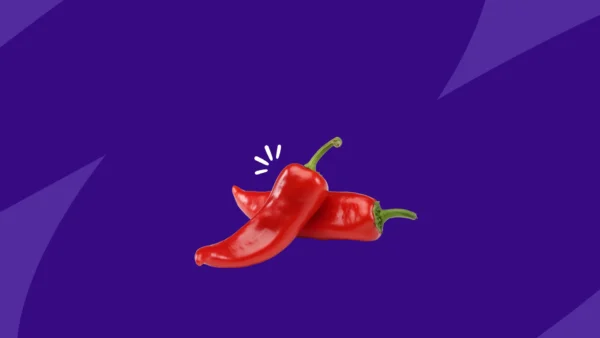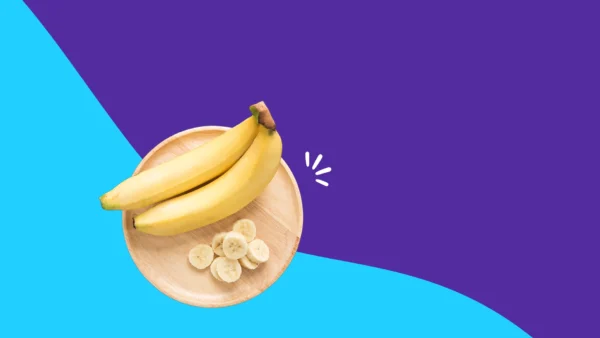Nightshades are a type of flowering plant called Solanaceae, so named because many flower and grow at night or in the shade. There are more than 2,700 species in the nightshades family, many of which are common foods such as potatoes and tomatoes. The name “nightshade” has a negative connotation because some plants in the Solanaceae family are toxic. However, many nightshades are not dangerous, and the ones we commonly eat are actually good for you, in most cases.
Are nightshades bad for your health?
For most people, edible nightshades are not harmful and are actually quite healthy. “In fact, they are part of a healthy diet for the majority of the population and provide numerous health benefits due to their high content of vitamins, minerals, and antioxidants,” says Danielle Crumble Smith, a registered dietitian with Top Nutrition Coaching.
While the news and popular nutrition chatter have shown a surge in discourse about the dangers of nightshades, “There are no studies linking nightshades to being detrimental for health,” says Yelena Wheeler, a registered dietitian in Los Angeles, California. While “there was a study that did show some detriment from nightshades for those with inflammatory bowel disease, but it was not based on human trials, and the quantity of nightshades was higher than recommended.” For the vast majority of people, edible nightshades do not pose a risk.
RELATED: IBD vs. IBS: Compare causes, symptoms, treatments, & more
Wheeler says that although there are anecdotal reports of those with inflammatory conditions having adverse effects from consuming nightshades, there are no human studies providing any concrete data.
Nightshade allergy symptoms
Rarely, people may have nightshade sensitivities and intolerance, which is not the same as being allergic. “True allergies to nightshades are quite rare,” Smith says. Symptoms of food sensitivities vary widely but may include:
- Itchy skin
- Eczema
- Difficulty breathing
- Muscle aches
- Joint pain
- Inflammation
- Excessive mucus production
- Rash or hives
- Headaches
- Dizziness
- Digestive issues such as bloating, heartburn, diarrhea, nausea, or vomiting
It can be hard to tell if you’re allergic or sensitive to something you eat frequently or if you have another health issue going on. “Symptoms of sensitivities or intolerances can take longer to appear, sometimes several hours or even days after consuming the problematic food,” Smith says.
Figuring out whether you have a food sensitivity is all about observing and checking. “There are no specific tests for sensitivities or intolerances. They are usually identified through an elimination diet and observing symptom patterns,” Smith says. You may need to conduct some experiments with your diet.
“If you suspect you have a sensitivity to nightshade vegetables, you can try eliminating them for a few weeks and then reintroduce them one at a time to assess your reaction,” says Sara Chatfield, a registered dietitian in Chicago, Illinois. She recommends working with a dietitian to help you identify suspected food sensitivities and ensure adequate nutrient intake while limiting foods before ruling out nightshades.
Although the idea that alkaloids found in nightshades may contribute to inflammation has not been conclusively proven, Smith says, “If you notice a specific reaction when you consume them, especially after following an elimination and reintroduction period, certainly avoid them.”
What is deadly nightshade?
Deadly nightshade sounds like something sinister. Indeed, “belladonna, also known as deadly nightshade, is a highly toxic plant in the same family” as other nightshades, says Smith. Belladonna has also been called “devil’s cherries.” Originally from Europe and Asia, belladonna can be found in many locations around the world. The name translates to “beautiful woman” because Venetian women used to try to make themselves more attractive by dilating their pupils with a belladonna tincture. While this is not recommended for aesthetics, ophthalmologists use a belladonna derivative to dilate pupils for exams. It is also used in controlled doses as an antidote, medicine, or lotion.
All parts of the deadly nightshade plant are poisonous to humans and animals, including the purple berries, which may be mistaken for edible.
Examples of nightshade foods
Some edible nightshade fruits and vegetables include:
- Eggplant
- Tomatoes
- Potatoes (excluding sweet potatoes)
- Bell peppers
- Goji berries
- Physalis (also known as Cape gooseberries or ground cherries)
- Tomatillos
- Pepino melons
Additionally, some spices derived from nightshades include:
- Cayenne pepper
- Paprika
As with any food, consuming too many nightshades at once can cause digestive issues such as acid reflux. “Nightshades like eggplants and tomatoes contain dietary fiber. While fiber is essential for healthy digestion, consuming too much can lead to digestive discomfort, including bloating, gas, and diarrhea,” Smith says.
Before assuming you have a nightshade sensitivity, consider that you may have had too much of an otherwise good thing. It would take an excessive amount of nightshade consumption to prove toxic, but Wheeler says, “If a toxicity does happen, there can be issues with liver function and jaundice.” If you have any issues with your liver or notice a yellowing of the skin, seek medical advice immediately.
Additionally, Smith warns of negative health outcomes from “calorie-dense nightshades like potatoes, especially in forms like fries or chips.” Too much starch can cause issues for some individuals. Smith says, “Eating large quantities of starchy foods can cause spikes in blood sugar levels, which is a concern for people with diabetes or those trying to manage their blood sugar levels.” She also warns that it’s important to balance one’s diet since focusing too heavily on any one group of foods, including nightshades, can lead to missing out on other important nutrients.
Nightshade benefits
Many nightshades have myriad health benefits. “Nightshade vegetables are rich in fiber, essential nutrients, and antioxidant plant compounds,” Chatfield says.
Specifically, “Tomatoes contain lycopene and beta-carotene. Lycopene can improve vision, prevent gallstones and urinary tract infections, lower blood pressure, and aid in digestion. Beta-carotene can assist with eye health, skin integrity, cancer prevention, and improved cognitive function,” Wheeler says. Chatfield adds that tomatoes “are a good source of antioxidant-rich vitamin C and carotenoids,” plus potassium. All of these benefits improve heart health.
Regarding peppers, Chatfield says, “Peppers have a variety of health benefits. They’re rich in antioxidant nutrients and plant compounds. Bell peppers are an excellent source of the antioxidants vitamin C, carotenoids, and B vitamins.” Green bell peppers are more likely to cause issues for sensitive people.
Potatoes can be a source of many health benefits. “White potatoes get a bad rap for being relatively high in carbohydrates, but they contain complex carbohydrates and fiber, so the carbohydrates are digested more slowly than the refined carbohydrates found in many processed foods,” says Chatfield. They’re also rich in vitamin C, potassium, iron, and several B vitamins.
How to safely consume nightshades
Most nightshades are safe to eat in various preparations. “Cooking methods don’t significantly lower the alkaloid content of nightshade vegetables,” Chatfield says. Some small changes in preparation can reduce harmful toxins. “Peeling the potato can reduce the amount of solanine in it,” Wheeler adds.
“To avoid consuming too much solanine, moderate your intake of green tomatoes, and avoid consuming tomato leaves. Green potatoes with elevated solanine may taste bitter or cause burning in the mouth and, if eaten, can cause nausea, abdominal pain, vomiting, or diarrhea,” Chatfield says. Additionally, she says, “Allow tomatoes to ripen, store potatoes in a cool, dark area, and avoid potatoes that have turned green or sprouted to limit alkaloid ingestion.”
Overall, unless you’re eating a large amount of nightshades, you don’t need to worry about how much you consume.
Bottom line: Nightshades are a nutritious part of most people’s diets
Eating nightshades is generally good for you, in moderation. There are many benefits of nightshades. Most people are not intolerant of or sensitive to nightshades, but those who are
should get advice from their doctor or a nutrition expert like a registered dietitian to decide whether to eliminate them from their diets. Overall, nightshade allergies are very rare, and edible nightshades provide many nutrients and are part of a complex, healthy diet.
Sources
- More than fifty shades of night, Cornell Cooperative Extension, St. Lawrence County
- Nightshade vegetables: A dietary trigger for worsening inflammatory bowel disease and irritable bowel syndrome? Digestive Diseases and Sciences (2023)
- The powerful Solanaceae: Belladonna, U.S. Forest Service











